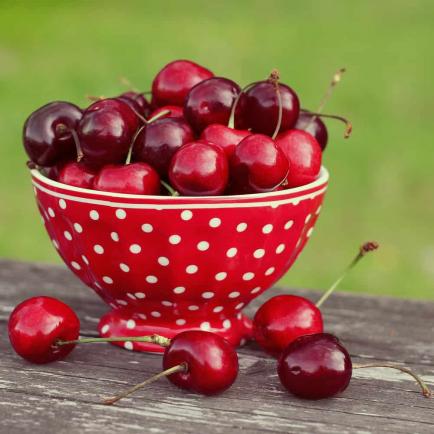
Diabetes and obesity have reached a new status in the population. I like the way Brene' Brown says it. "We are the most in-debt, obese, addicted and medicated adult cohort in U.S. history."� Statistics on obesity and diabetes have reached staggering heights and Brown is correct - never in history have we been this sick and fat. The Center for Disease Controlsays that at this rate - by the year 2050 - one in three Americans will develop diabetes. How old will your children and grandchildren be in 2050? Will they be the one in three?
Sugar is the bad guy. We've heard, "Sugar is poison."� "Sugar is toxic."� We've come to think of it as devilish, bleached, stripped, nasty stuff. And yes, it's everywhere - not only added by manufacturers to most packaged foods, but sugar occurs naturally in every fruit and vegetable in the plant kingdom. Trying to decipher the quagmire of names that are used to label sugar can be exhausting at best. The Corn Refiners have just petitioned the FDA to label HFCS (high fructose corn syrup) as corn sugar- just to mess with our heads even more.
If we want our families to enjoy good health and live with vitality it requires a diet of whole, natural foods, low in empty sugars. Natural food sweeteners such as honey, maple syrup, dates and agave nectar, while they still contain sugar, are more easily assimilated by the body, have nutritional value and pose less health risks than processed sugars - especially for children. Let's reel in this broad net of blame and get smarter about sugar so we can solve our problem of disease. So, is all sugar bad?
To clarify, Glucose is the name for sugar in your blood. Your body cannot function without it. Fructose (accompanied by nutrients and fiber) is the sugar in fruit. Fresh fruit - especially when eaten alone - binds with metals and other toxins escorting them out of your body and is cleansing to your system. HFCS is made from the genetic modification of corn. It depletes leptin storage, which keeps us feeling hungry and can be addictive. It is widely used because it's inexpensive and has preservative qualities. Sucrose may have started out from beets or cane sugar but is refined and processed. The term generally refers to bleached, white table sugar. It has zero nutritional value.
Most of us have come by our sweet tooth honestly - with practice. The foods you like are the foods your children will learn to like. Taste is acquired, so learning to love Twinkies can happen just as easily as learning to love raw fish. Walter Willet of the Harvard School of Public Health said about diabetes, "Apart from lung cancer, there is no other disease that can be almost eliminated with simple lifestyle changes."�
It comes back to personal responsibility. In order to reduce the risk of diabetes and obesity for ourselves and our families, we'll need to find a satisfying replacement for processed sugar and HFCS. A little patience goes a long way here. In the beginning let's shoot for tolerable replacement. When given a chance - tolerable can turn in to satisfying. Satisfying can turn into a new favorite and a lifestyle change that will stick. You've got to set yourself up for success by giving your family options.
Here are some simple lifestyle changes you can make:
Keep fruit handy
Keep plenty of your favorite fresh, seasonal fruit on hand - perfect plump, ripe peaches, big juicy oranges, a little basket of rainier cherries or whatever sounds good to you. Make sure they have a chance to ripen on the counter to perfection. Then refrigerate until really cold. Slice or present it just the way you like it. Then, you won't miss the ice cream because you've been looking forward to that perfect, juicy, tastes-like-summer peach!
Substitute sweeteners
Use chopped dates instead of sugar to sweeten muffins, cereal, cookies and smoothies. When chopped super fine, they can be used many places adding just sweetness and not so much of a date flavor.
Use agave nectar to sweeten tea or other drinks.
Maple syrup and honey are whole foods and can be used for cooking and sweetening most anything.
Just say no
Let your children see you refuse sugary foods and make smart food choices. They'll begin to value their own health as well.
It takes practice to adjust unprocessed sweeteners to taste, but as you practice you'll be reducing the amount of white sugar and HFCS in your family's diet while still enjoying a treat. We remember Paracelsus, the father of toxicology for saying, "The dose makes the poison." Consuming processed sugar and HFCS in high amounts is poisonous and setting ourselves and our families up for disease. With the availability of fresh fruit and other whole food options you can satisfy your sweet tooth, reduce your family's risk of disease and teach your kids how to eat well all at the same time.

